A 50-year struggle to see stolen antiquities returned to the island has finally come to a close, the director of the antiquities department said on Monday at a ceremony to open an exhibition of some of the items.
“Today, we close a long and painful chapter, an effort that reflect our commitment to preserving our cultural heritage,” Giorgos Georgiou said.
A recently signed Historic Repatriation Agreement signals the final chapter of the Aydin Dikmen case involving the smuggling of antiquities, and saw 60 looted items returned to the island.
Turkish antiquities smuggler Dikmen, aided by the Turkish authorities and accomplices, was responsible for the removal of over 50 Greek Orthodox, Maronite and Armenian Christian monuments, as well as antiquities from archaeological sites and private collections in the north.
Among the thousands of objects seized from Dikmen’s antiquities smuggling operation in March 1997 were 318 relics of Cypriot origin, including mosaics from the 6th century, frescoes spanning the 8th to 15th centuries, icons, doors, manuscripts and various prehistoric artefacts.
“Today, 50 years after the invasion in 1974, we are still trying to collect the fragments of our culture that were looted and scattered to the winds,” Georgiou said.
“This ceremony marks the closure of a significant chapter in the struggle to recover our cultural heritage.”
Speaking during the ceremony, President Nikos Christodoulides said the return of the stolen antiquities “is a collective success”.
“Each repatriation is a tangible achievement in preserving and protecting our cultural and religious identity. The looting of religious and cultural heritage is a tragic and ongoing wound from the Turkish invasion and occupation.”
He also commended the continued monitoring of antiquities auctions and the tracking of illegal excavations in the north, “which increase the risk of significant artifacts being unlawfully removed”.
“These collective efforts are crucial in resisting the sale of our heritage and protecting our cultural and religious identity, of which we are immensely proud.”
The Dikmen case dates back to 1997 when artefacts were discovered in his possession in Munich. The legal battle began in 2004 and saw its resolution in 2010 with the decision of the Munich District Court.
However, Dikmen’s subsequent appeal to the Court of Appeal led to the partial repatriation of 173 relics in July 2013 and another 85 in August 2015.
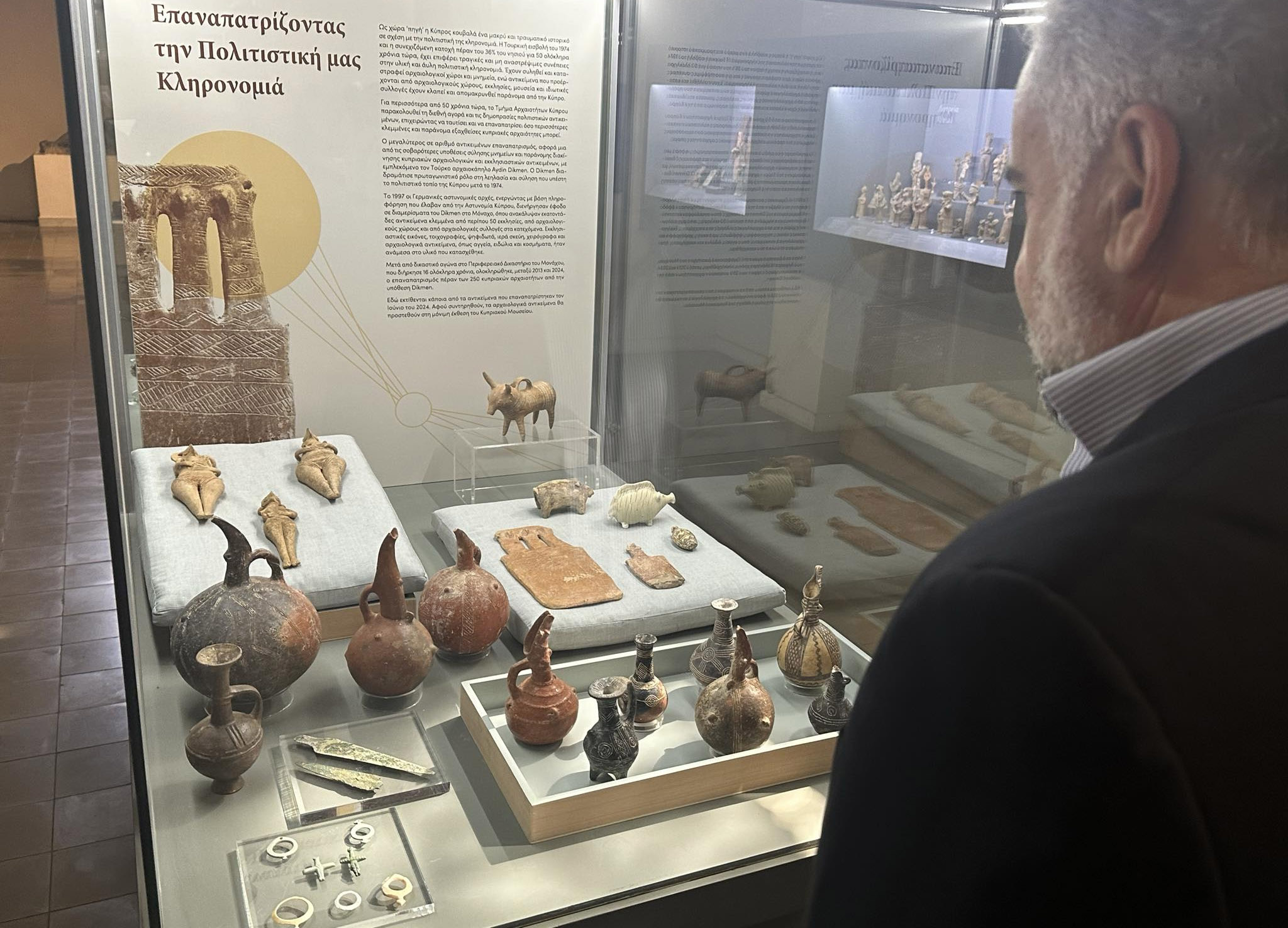
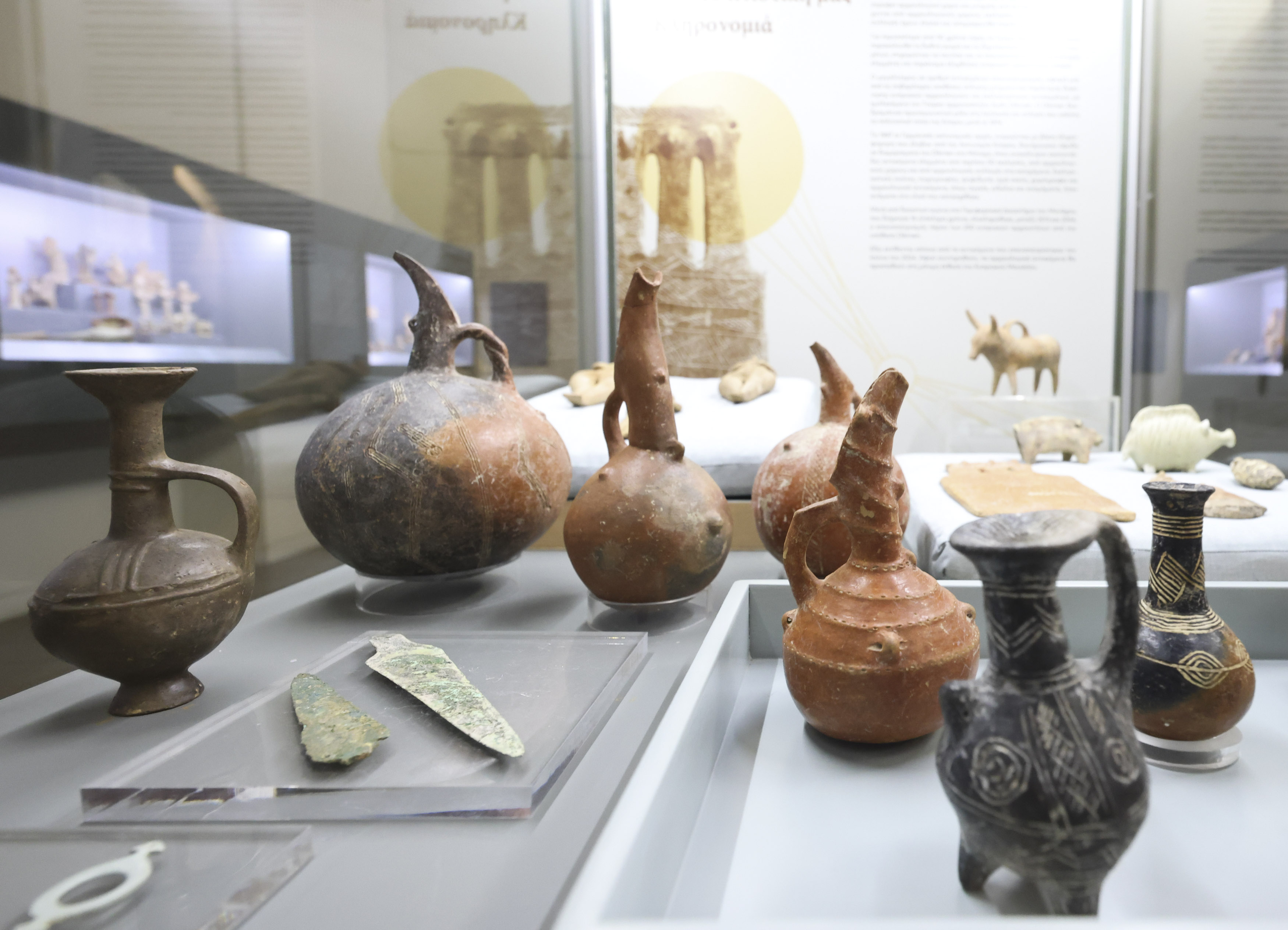
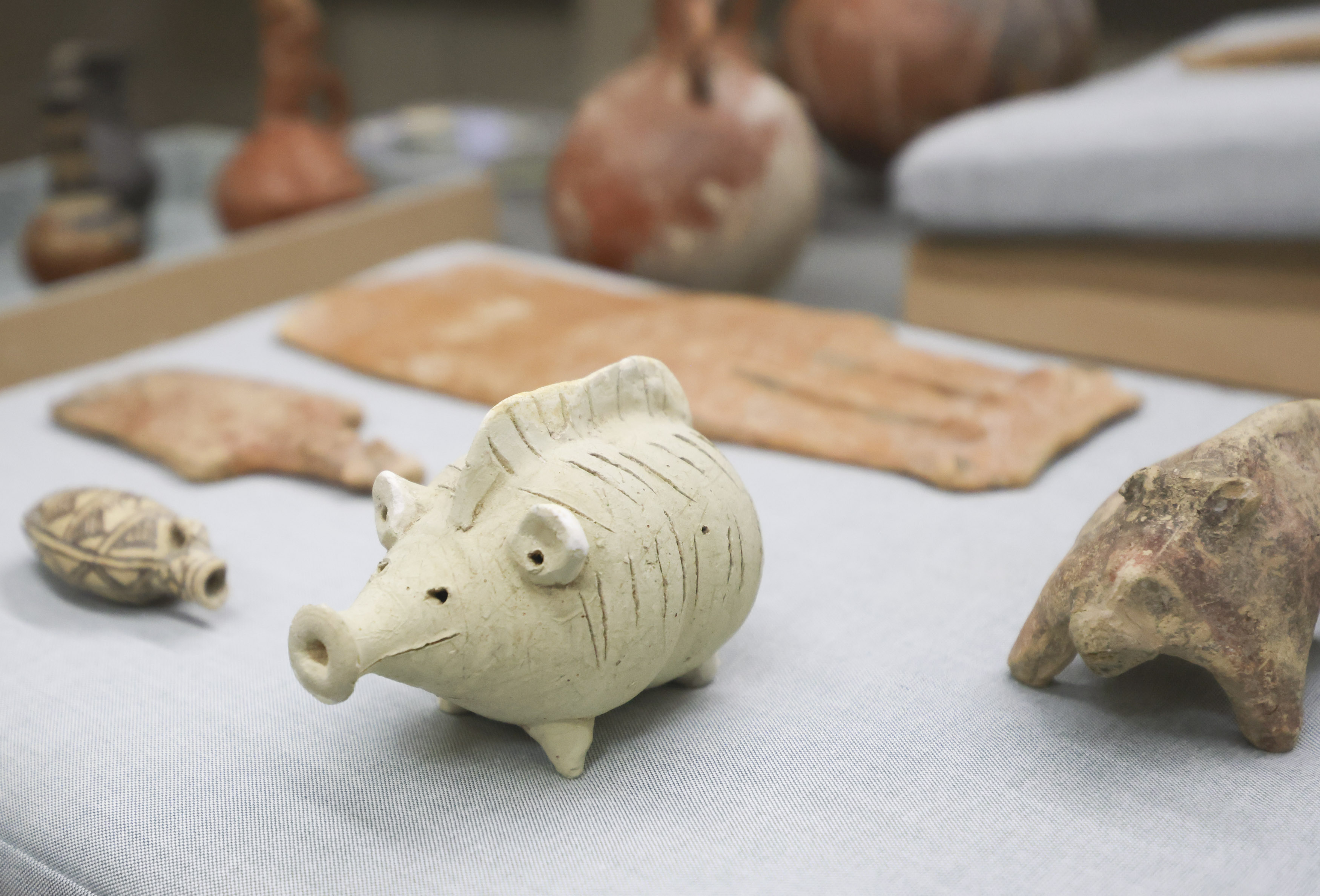
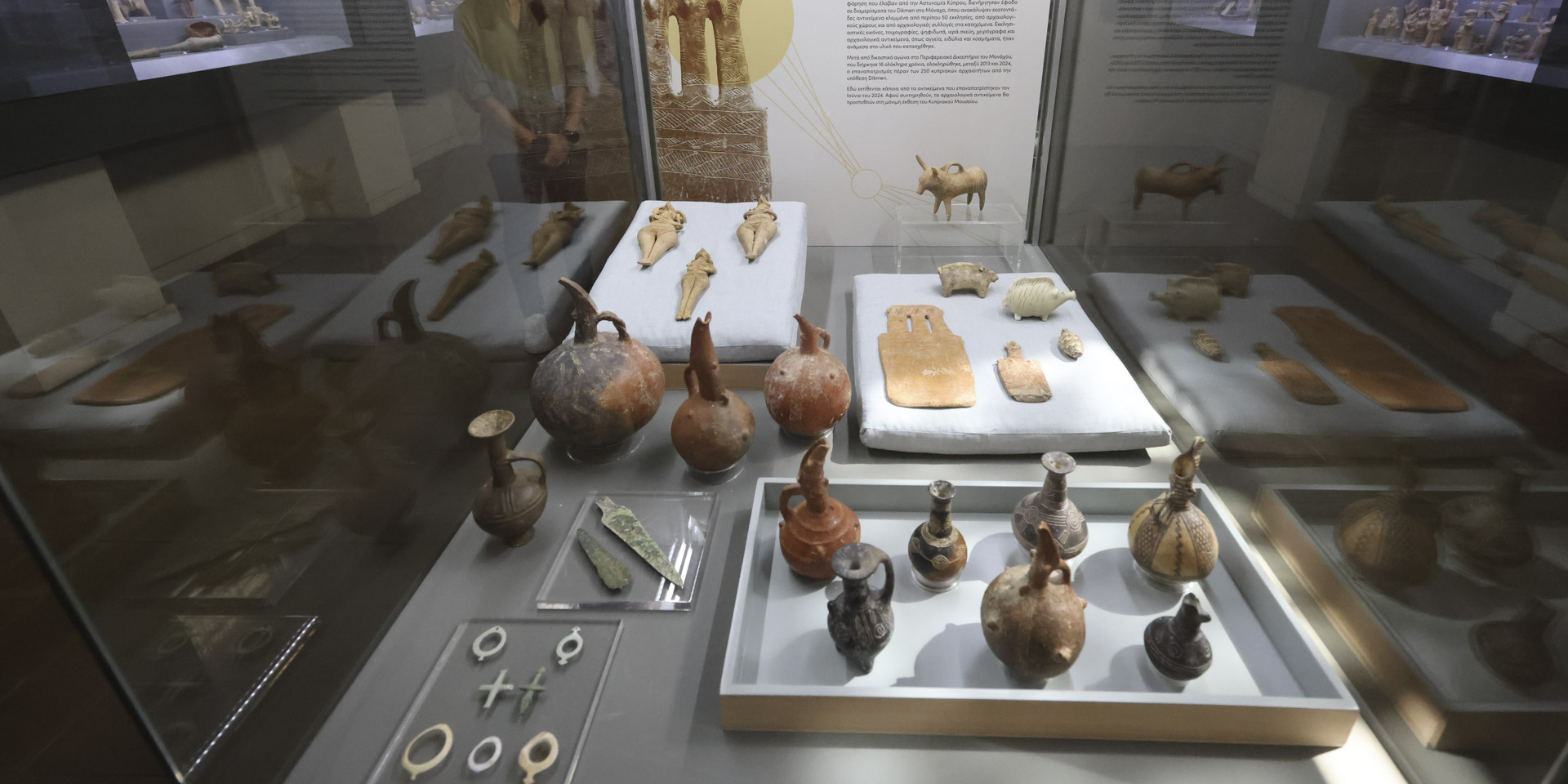
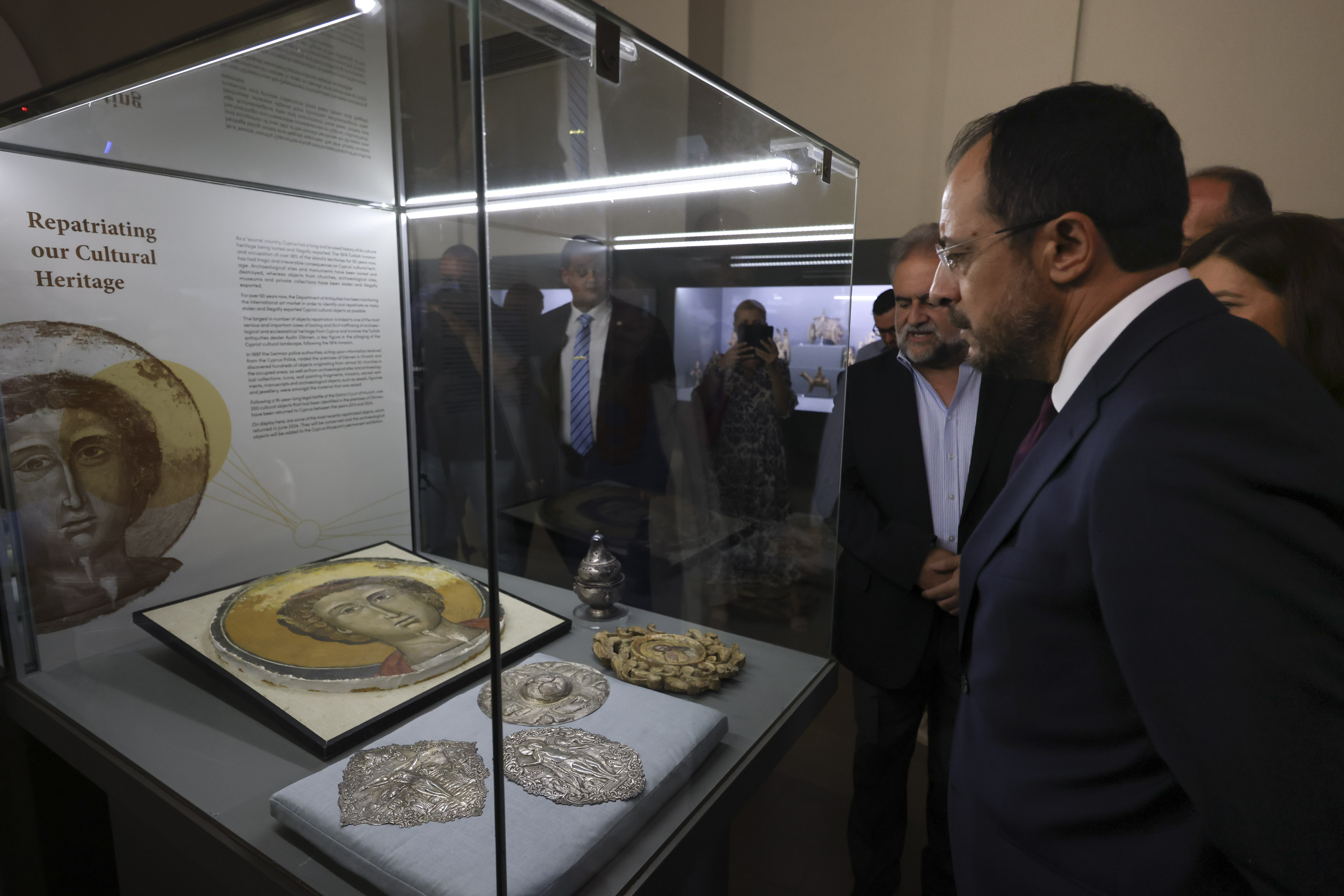
The final act of the Dikmen case unfolded with the signing of the repatriation agreement.
“Strengthened national legislation, international treaties, and agreements have been pivotal in these efforts, the department has also developed a detailed digital database to monitor online auctions of antiquities, in collaboration with the Cyprus police and Interpol,” Georgiou said.
“The contribution of the department of antiquities in the Dikmen case is just one part of our extensive efforts to combat the looting and illegal trafficking of our archaeological heritage,” he added.
“Together with my colleagues, we strive daily to preserve what history and time have handed down to all Cypriots, as tools of self-awareness, confidence, and dignity.”
Present during the ceremony and representing Archbishop Georgios, Karpasia Bishop Christophoros called Monday “a significant day, marking a long effort to reclaim looted Cypriot relics following the Turkish invasion in July 1974”.
However, he also added that, despite the return of the artefacts and although Dikmen died in 2020, “his heirs unfortunately still possess, and traffic stolen cultural goods from Cyprus”.
According to the Director of the Office for Combating Illegal Possession and Trafficking of Antiquities Michalis Gavrielides, over 16,000 Christian icons, mosaics and murals dating from to 6th and 5th centuries have been forcibly stolen and sold abroad since the Turkish invasion in 1974.
Georgiou underlined that the efforts to return stolen and looted good to Cyprus should continue unabated.
“Effort needs to include bolstering national legislation, ratifying international conventions, and engaging in intergovernmental and international agreements,” he said.
“The department remains committed to locating, claiming, and repatriating illegally exported antiquities, controlling cultural property imports, developing new technologies, training relevant authorities, and raising public awareness, essential for protecting our shared cultural heritage.”

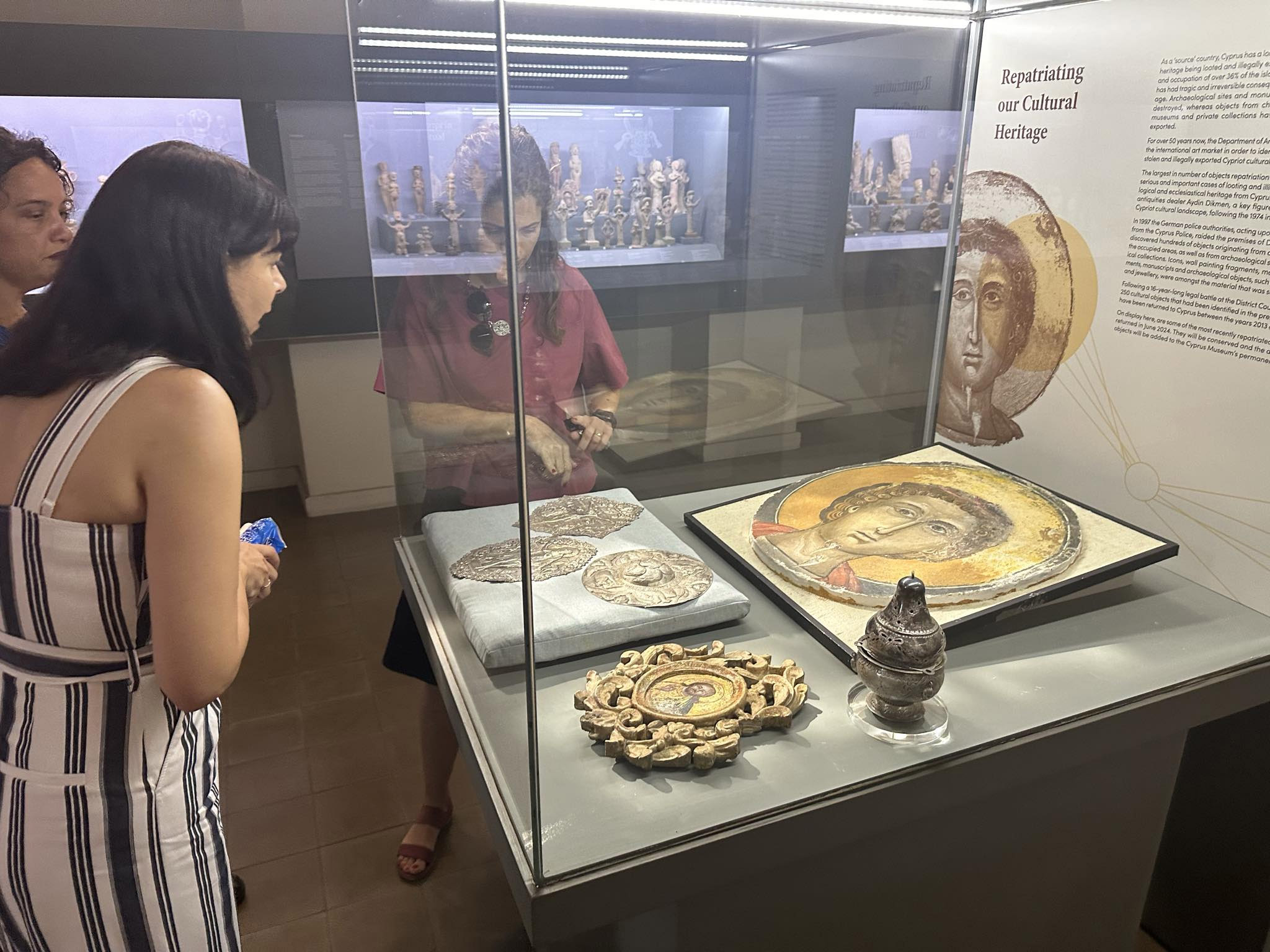

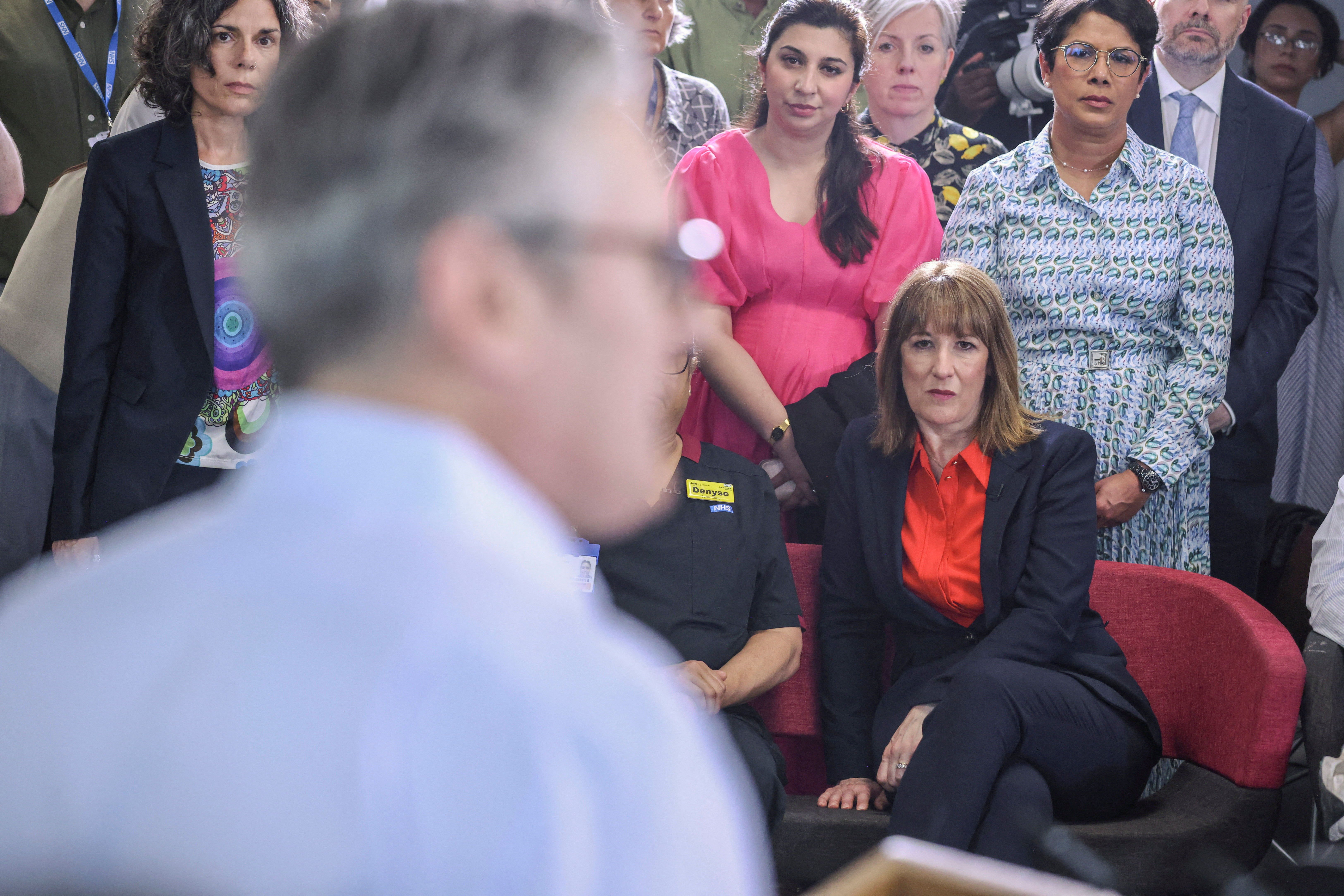



Click here to change your cookie preferences